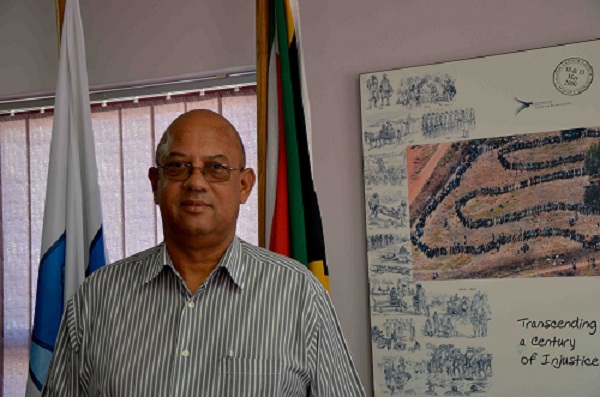In terms of preparation for the election, Courtney Sampson, Provincial Electoral officer for the IEC in the Western Cape told Peoples Assembly, “The IEC works according to a very strict timetable that is legislated. As soon as an election is called, that timetable kicks into place. The timetable determines the closing of voters roll, the publishing of the names of the voting stations, where the voting stations will be, the date when candidate nominations start, the date at which you can object to candidate lists... everything is very clearly set out. [Last Thursday 24 April] the candidates for the National Provincial election were certified via our national office.”
 Courtney Sampson, Provincial Electoral officer for the IEC in the Western Cape
Courtney Sampson, Provincial Electoral officer for the IEC in the Western Cape
As far as voting is concerned, unlike certain other countries, inmates at correctional centres are allowed to cast their ballots, “The intention... is to make it possible for all South Africans to vote... It is part of the inmates' rehabilitation into society” said Sampson. If someone who is illiterate comes to the polling station, the presiding officer votes on their behalf. This is observed by party agents.
Sampson explains that every political party contesting the election is allowed to have two party agents represented inside each voting station. They are trained by IEC beforehand so that they understand the process. “The intention is that they observe the process so that they can make sure the process runs as it should and that everything is above board”.
Sampson explained that counting must be concluded behind closed doors and on the same day. The party agents are also present at the counting. After the results slip has been filled in by the presiding officer it is signed off by the officials of the political parties present at the polling station.
After counting, the results slips are taken to the IEC capturing sites and entered into the system, from which point the results becomes public. “There is no movement of ballots from the venue where the votes are cast until counting has been concluded. Only after counting do the ballot boxes get taken away,” explained Sampson.
What about the voters themselves? Sampson told People’s Assembly, “One of the biggest challenges in running the elections is voter behaviour” particularly the “culture of entitlement” shown by some privileged voters in areas like Claremont who complain about a “long queue of 10 people”. Sampson said this compares on average to 150 people waiting to vote in areas like Khayelitsha, who aren’t complaining. According to him, “the inequality of society is palpable during elections.”


Comments
Keep comments free of racism, sexism, homophobia and abusive language. People's Assembly reserves the right to delete and edit comments
(For newest comments first please choose 'Newest' from the 'Sort by' dropdown below.)